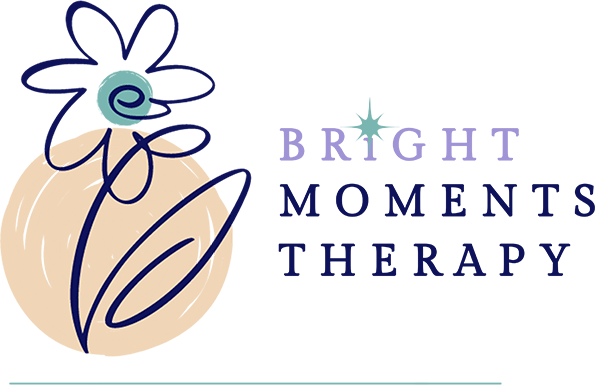Grief Counseling
Practical approaches and a safe, supportive environment to help you heal through the grieving process.
SHARE THIS PAGE

Grief is a normal part of the healing process following a loss. However, knowing it is a natural process doesn't make experiencing it any easier. Especially when it feels like those around you don't understand or feel the loss with the same intensity.
As a
therapist specializing in grief counseling, I can support you during a difficult transition and help you find a way to move forward while honoring the past.
Psychotherapy for Grief and Loss

A Lot
to
Deal
With
Alone
We offer a welcoming environment for people of all races and life experiences. And, we also recognize the unique challenges facing many Black men, women, couples, and families. That is why we offer a supportive atmosphere to speak openly about your thoughts, emotions, and experiences.
Life on Mute
Grief can cause it to be challenging to make it through your days, potentially affecting relationships, work, school, and other responsibilities while diminishing the joy in everyday things. It may feel like the sun has gone out of your world.


Happiness
can
Return
It may not be easy to feel optimistic following a loss, but be confident that your happiness can return with time. A common misconception is that accepting the loss means you're giving up on your lost loved one. However, you can continue to honor your memories while finding peace and joy again.
Grief Therapy
can
Help
Grief and bereavement therapy can be a highly effective treatment when you feel stuck and in pain due to an unresolved loss. We help you acquire coping mechanisms that find meaning in a loss, decrease the intensity of sad feelings, and restore your ability to enjoy life.

SHARE THIS PAGE
What to Expect with Grief Therapy
Step 1.
Discovery Consultation
We’ll have a brief 20-minute conversation to discuss what brings you to seek a therapist. This is also an opportunity to ask questions and get a feel for your therapist’s style.
Step 2.
Let’s Get To Work!
During a series of confidential, 50-minute sessions we will create a personalized treatment plan, discuss possible outcomes and provide evidence-based tools to address your identified objective.
Step 3.
Live With Optimism
Progress through the continuum of self-efficacy. The goal of therapy is to feel confident in your coping skills and navigate life with increased self-awareness.
Isn't it time to heal and resume living a healthy life?
SHARE THIS PAGE
Your initial consultation is
free.
It's completely
confidential .
And, there is
no obligation.
Why Choose Us for
Grief and Trauma Therapy
Faith & Gratitude
We recognize a higher power, spiritual laws, and our place in the universe
We help you find motivation through people and events that positively impact your life
We help you access healing energy that exists outside of ourselves
Collaboration
Experience the comfort and confidence of a trusted partner during your journey
We jointly identify your goals and create a treatment plan to reach your desired outcomes
Feel comfortable to be open and honest in a safe, non-judgmental environment
Develop skills for improved inter-relations
Self Empowerment
Discover inner strength to achieve your goals
Understand how your individual experiences impact ways of coping
Discover often unconscious meanings and motivations
Eliminate or control troubling symptoms to move to a place of increased self-realization and healing
Practical Psychotherapy
for Grief
& Loss
As a licensed therapist, I offer my services as a trusted partner to walk with you through your hardships to find healing and peace.
Because grief is a deep and personal emotion, we tailor our work together based upon your needs. For example, we can incorporate Christian bereavement counseling and other types of therapy. As a
grief and loss support specialist, I have the tools and expertise needed to help you navigate a path to wellness.
You can Find Peace
Start your healing journey in a safe and inclusive environment today. Find your Bright Moments again by contacting us for your free phone consultation.
SHARE THIS PAGE

What Do You Talk About With a Grief Therapist?
A grief therapist lends you a sympathetic ear and a non-judgmental and supportive space to explore your grief. For example, you may talk about your loved one, stresses, and emotions.
Your therapist will explain the normal grieving process to understand better what stage you are at and work together to learn how to cope and find a healthy relationship with your loss.
You may also talk about accepting reality without your loved one and how to integrate that into your identity and everyday life.
What Does Grief Do to Your Body?
Everyone's experience with grief is different, but some people have reported feeling a range of physical symptoms from mild to more serious.
These symptoms include stomach aches, trouble sleeping, increased risk of heart attack, loss of appetite, and being more prone to infections.
Grief can also increase the inflammation in your body, aggravating existing health problems and potentially causing new ones.
What Does Bargaining Look Like In Grief?
In grief, the bargaining stage may mean having many "what if" or "if only" thoughts. For example, if only I made them go to the doctor sooner, or if I had visited or called more often. This is thought to be part of your body's natural defense mechanism, an attempt to protect yourself by putting off grieving or feeling pain until you are ready.
What Is the Longest Stage of Grief?
The depression stage, also known as the disorganization and repairing step, is the longest stage of grief. It can last anywhere from months to years. This is one stage where some people tend to get stuck and may need a supportive ear or some professional help to come to accept their loss.
